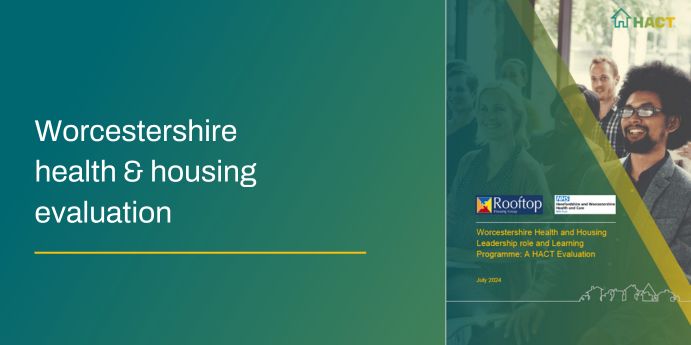To learn more about how HACT can help you evaluate or develop a successful social prescribing programme, contact HACT Health & Research Lead Sarah Parsons
Mental health and personal finances are intrinsically linked. For social housing residents, rising costs, specifically those for their home could lead to poor mental health. This means that supporting residents’ mental health and wellbeing is not only moral but has a positive business benefit through tenancy sustainment. In parallel, the NHS and local government services are under constant strain, so there is scope and need for housing providers to act.
Social Prescribing has successfully been used across the country for the older population, initially provided predominantly through Primary Care Networks. However, many housing associations have now developed their own social prescribing programmes which can be more readily delivered due to their direct and frequent access to those people that need this service the most. This expanded provision has been shown to support positive health and wellbeing outcomes for individuals as well as enhance community development.
HACT works with housing associations to evaluate their social prescribing programme, working collaboratively towards achieving such things as:
- Independently evaluating social prescribing services to empirically quantify the impact on service users.
- Maximising the learnings from an evaluation to ensure a robust service design, embedding a durable culture of continuous improvement.
- Providing evidence to local health partners of collaborative investment and partnership working.
- Optimising data collection and delivery with recommendations for the future.





